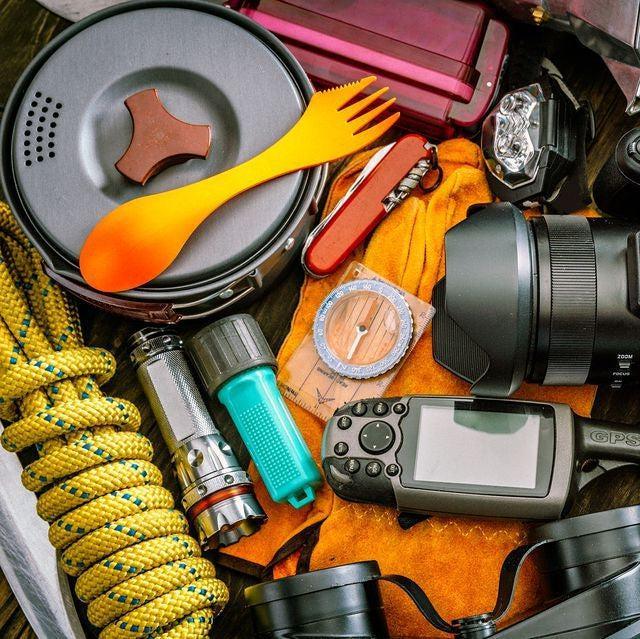Mental and Emotional Well-being FAQ
Maintaining Mental Health
Q: How can I maintain my mental health in a survival situation?
A: Maintaining mental health in a survival situation can be challenging, but it's essential to stay focused and resilient. Strategies to maintain mental health in a survival situation include staying positive, focusing on survival goals, practicing mindfulness, seeking support from others, and staying active and engaged in meaningful activities.
Q: How do I develop a survival mindset?
A: Developing a survival mindset involves developing the mental and emotional preparedness necessary to handle unexpected and challenging situations. This can be accomplished by learning survival skills, practicing resilience, staying positive, and being mentally and emotionally prepared for whatever may come.
Managing Stress and Anxiety
Q: What are some effective ways to manage stress and anxiety during a survival situation?
A: Effective ways to manage stress and anxiety during a survival situation include practicing mindfulness, maintaining a positive attitude, staying busy and active, seeking support from others, and taking time to rest and recharge.
Q: How important is mental and emotional preparedness in a survival situation?
A: Mental and emotional preparedness is critical in a survival situation because it helps people stay focused, resilient, and motivated. Being mentally and emotionally prepared allows individuals to cope with stress, anxiety, and uncertainty while maintaining a positive attitude and a sense of purpose.
Coping Strategies
Q: What are some common mental and emotional challenges that people face in survival situations?
A: Common mental and emotional challenges that people face in survival situations include stress, anxiety, fear, loneliness, isolation, and a sense of hopelessness. These challenges can arise from a lack of basic needs, uncertainty about the future, and a loss of social support and familiar routines.
Q: How can I stay motivated and maintain a positive attitude during a survival situation?
A: Staying motivated and maintaining a positive attitude during a survival situation requires setting realistic goals, focusing on survival needs, practicing mindfulness, seeking support from others, and staying engaged in meaningful activities.
Seeking Support and Building Resilience
Q: How can I deal with loneliness or isolation during a survival situation?
A: Dealing with loneliness or isolation during a survival situation requires staying busy and engaged in meaningful activities, seeking support from others, and maintaining a positive attitude. It's also important to stay connected with loved ones through communication when possible.
Q: What are some ways to build resilience and mental toughness in preparation for a survival situation?
A: Ways to build resilience and mental toughness in preparation for a survival situation include learning survival skills, practicing problem-solving, staying physically fit, maintaining a positive attitude, and seeking support from others.
Coping with Trauma and Grief
Q: How can I cope with trauma or grief in a survival situation?
A: Coping with trauma or grief in a survival situation requires seeking support from others, practicing mindfulness, engaging in meaningful activities, and allowing oneself to feel and express emotions.
Q: What are some signs that I may be experiencing mental or emotional distress during a survival situation?
A: Signs of mental or emotional distress during a survival situation may include feelings of hopelessness or despair, anxiety, irritability, anger, difficulty concentrating, loss of appetite, insomnia or sleeping too much, lack of energy, and feeling disconnected from others.
Seeking Help and Maintaining Social Support
Q: How can I seek help or support for mental or emotional issues during a survival situation?
A: Seek help or support by communicating with others and expressing your emotions, even if it's difficult. Identify trustworthy individuals in your support network and talk to them about your concerns. Consider using teletherapy or other remote mental health resources if they are available.
Q: What are some ways to maintain a healthy social support network during a survival situation?
A: Some ways to maintain a healthy social support network during a survival situation include building relationships with others who share similar values and interests, regularly communicating with family and friends, and participating in group activities and tasks.
Additional Strategies
Q: How can I use creative expression to cope with stress and emotions during a survival situation?
A: Creative expression can be a powerful tool for coping with stress and emotions during a survival situation. Writing in a journal, drawing, painting, or playing music can help to process difficult emotions and provide a sense of relief and comfort.
Q: What are some ways to maintain a healthy sleep routine during a survival situation?
A: To maintain a healthy sleep routine during a survival situation, establish a regular sleep schedule and stick to it, even if it means adjusting to a new environment. Create a comfortable sleeping area and avoid caffeine, alcohol, and electronic devices before bed.
Q: How can I balance the need for self-reliance with the need for social support during a survival situation?
A: Balancing the need for self-reliance with the need for social support during a survival situation involves recognizing your own strengths and limitations, and seeking help or support when needed. Identify the strengths and skills of others in your group, and work collaboratively to achieve common goals.
Q: What are some techniques for building mental and emotional resilience in children and adolescents during a survival situation?
A: Techniques for building mental and emotional resilience in children and adolescents during a survival situation include maintaining a consistent routine, engaging in stress-reducing activities, encouraging creative expression, providing opportunities for socialization, and emphasizing positive coping strategies. It is also important to communicate openly with children and adolescents about the situation and provide them with age-appropriate information and support.

American Survivalist Insider
Join our community and be the first to receive expert survival guides, exclusive product releases, limited-time discounts, and the latest news and trends in emergency preparedness.

